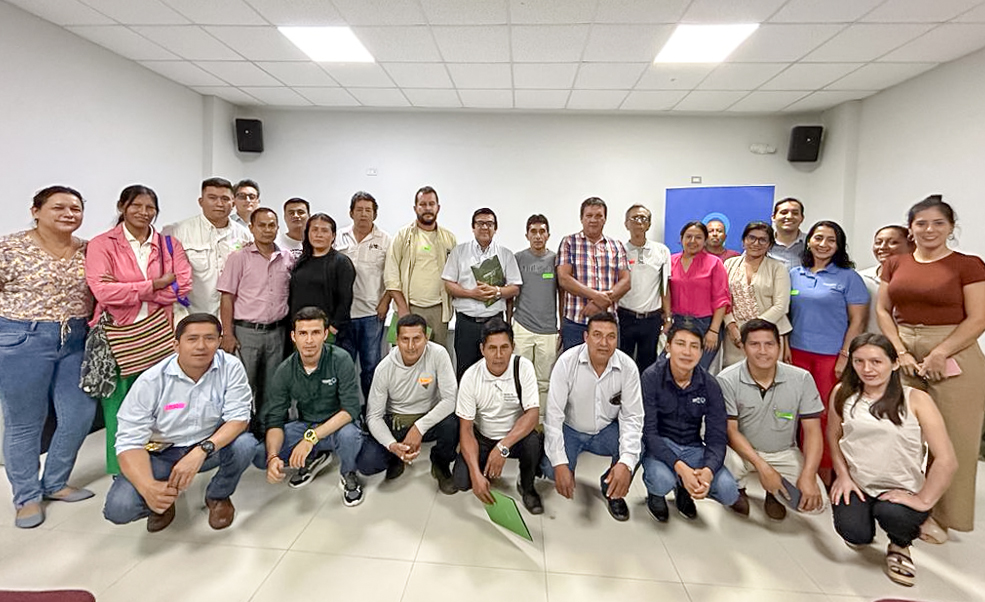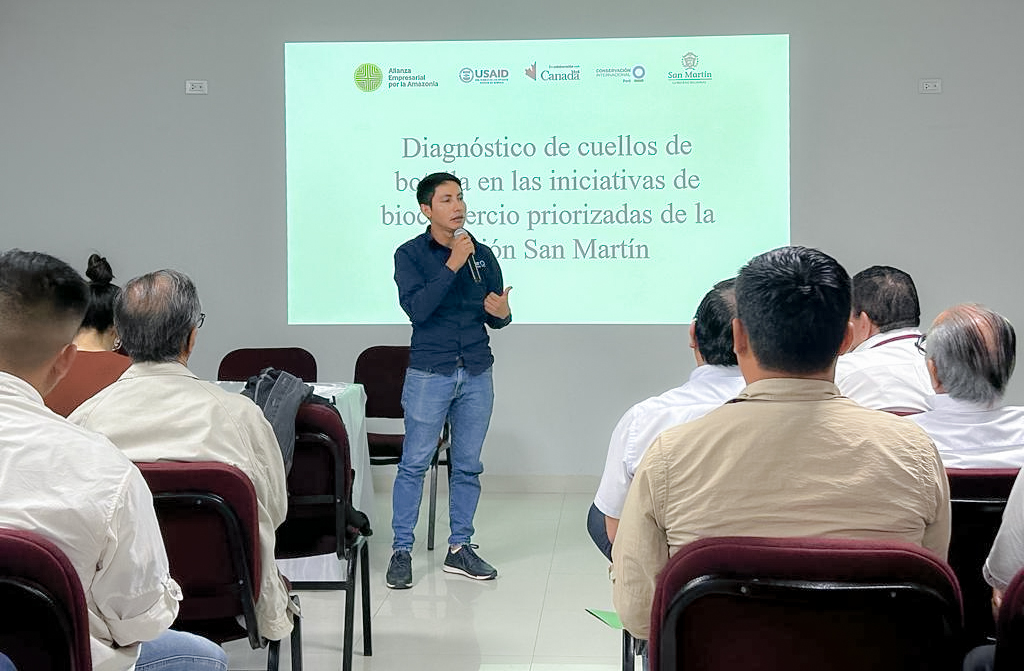

As part of the collaborative work plan between Conservation International Peru and the Regional Government of San Martin, a workshop was held on biotrade chains for vanilla, cat's claw, shiringa and sangre de grado in the San Martin region. These four chains have great potential based on supply and demand, and are a key strategy for adding value to the standing forest through the sustainable use of native resources.

In this sense, this workshop is part of a joint effort between the Regional Government of San Martin through its Economic Development Management and the Forest Finance Investment Incubator (FFII) project, funded by the U.S. State Department, and the Amazon Business Alliance, led by USAID, the Government of Canada and Conservation International Peru. These initiatives promote investments and financing for sustainable development in Peru, with a specific focus on areas such as climate, biodiversity and poverty reduction.
Focusing on the prioritized chains, this workshop brought together representatives of the Regional Government, academics, producer organizations and other key stakeholders. The main objective was to identify the bottlenecks that hinder the development and scaling up of these chains and propose effective solutions to overcome them.
“promoting the bioeconomy means promoting economic activities in a sustainable and intelligent way, changing our attitude towards the resources offered by the forest and making a conscious use of them. We need development policies with a focus on sustainability, both from the regional government and in collaboration with the various stakeholders and communities. I am confident that we will be able to move forward effectively and come out stronger, with tools that we can take to the different levels of government.”
Durante el taller, los especialistas de las diversas cadenas analizaron los cuellos de botella, enriqueciendo así el diagnóstico inicial. Si bien se abordaron aspectos específicos de cada cadena, se identificaron puntos comunes como la necesidad de información, investigación y capacitación a productores y funcionarios públicos, las brechas de formalidad y permisos de aprovechamiento y la necesidad de visibilizar cada cadena y crear espacios técnicos que las fortalezcan.
A pesar de su relativa novedad, estas cadenas han experimentado un crecimiento significativo en los últimos años. Por ello, se enfatizó en la importancia de la investigación, protocolos estandarizados y la creación de un volumen significativo de producción mediante la colaboración entre asociaciones, empresas y organizaciones.
Este taller representa un paso crucial hacia el desarrollo sostenible en San Martín a través de la bioeconomía, enfocándose en superar los desafíos y potenciar las oportunidades de estas prometedoras cadenas productivas. La unificación de esfuerzos y la colaboración continua son fundamentales para alcanzar el éxito en este ambicioso proyecto.